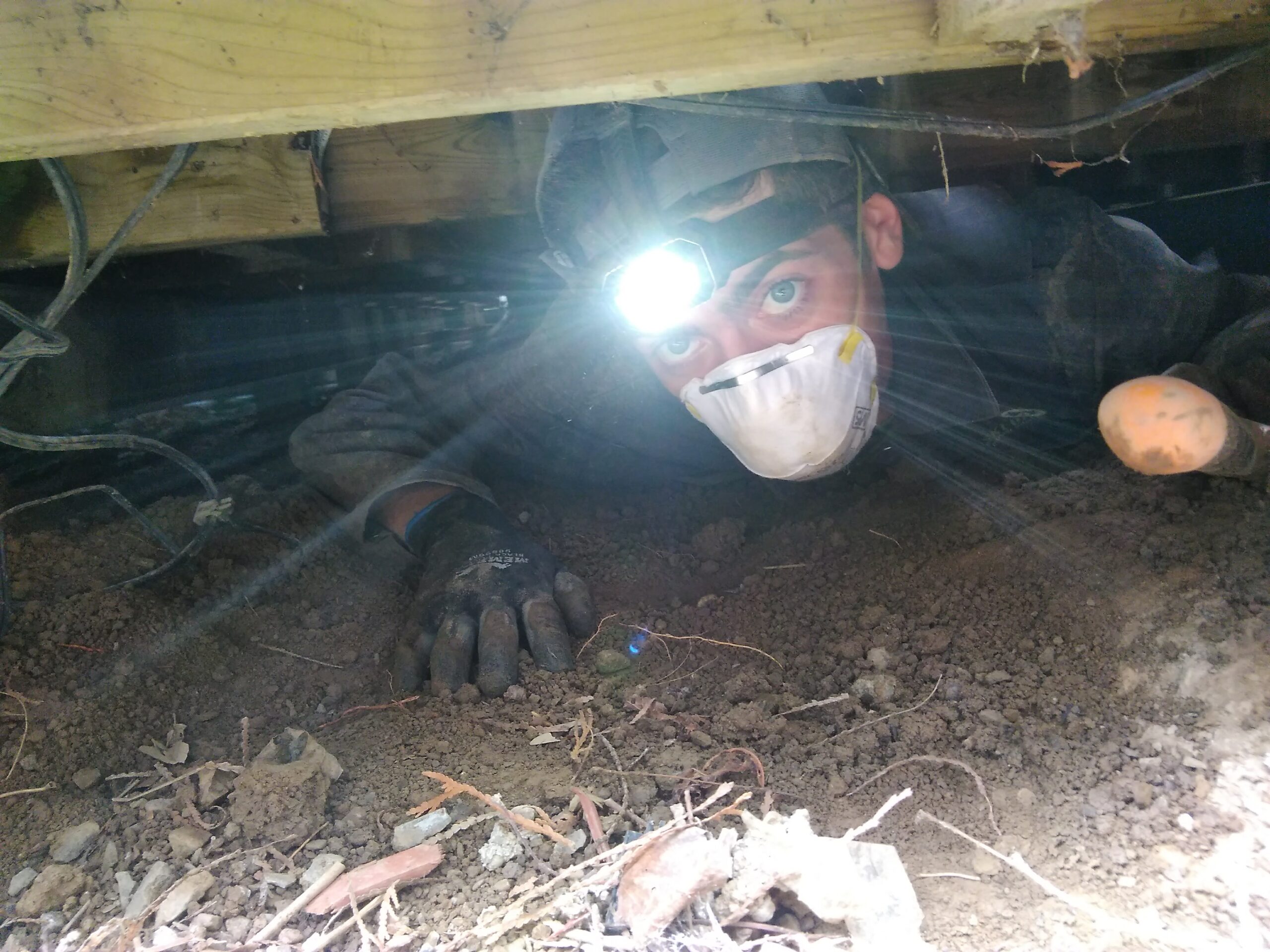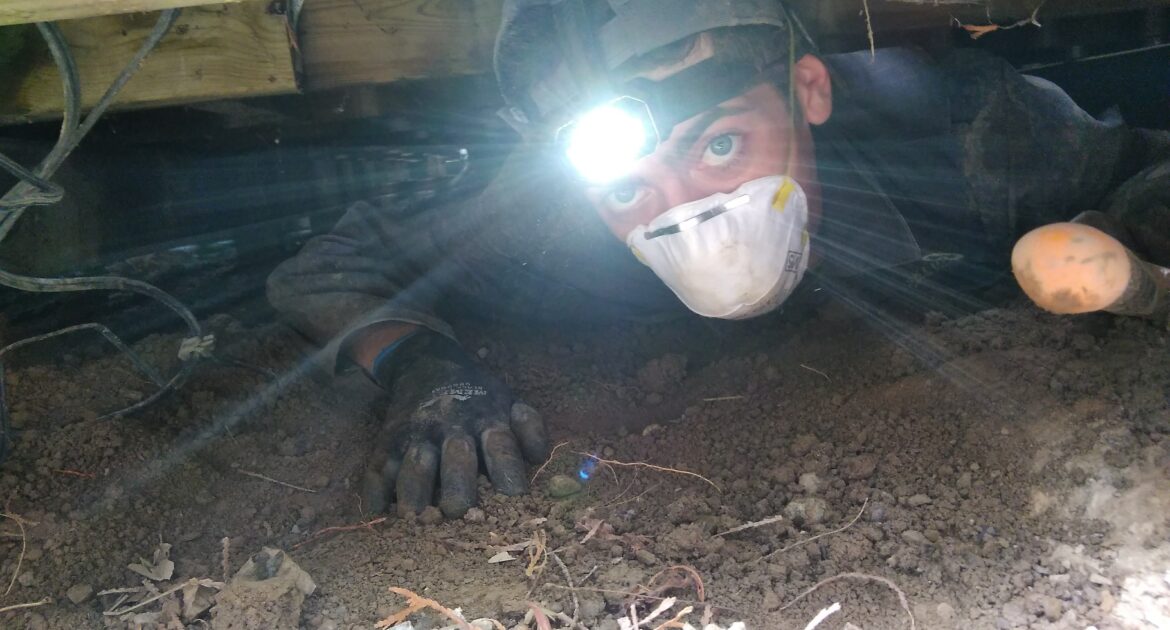Skunks are burrowing animals that like to dig a den under a sturdy, immovable object that provides some shelter and protection. Skunks adapted to urban living may dig a burrow under a storage shed. It may be possible to deter skunks from burrowing under your shed in the first place or, failing that, to convince them to leave on their own, yet professional skunk removal in Whitby is appropriate as a first course of action when you find them.
Why Skunks Live Under a Shed
While skunks do not hibernate, they do spend most of the winter in a state of inactivity called torpor. They need a safe, warm place where they can spend days at a time unconscious. Your shed may be an ideal space because, depending on what you store there, you probably don’t go out there very often, meaning that the skunk can have some privacy. Skunks usually spend the winter months alone.
Skunks mate in late winter and give birth in the spring. The babies stay with their mothers through the summer. Skunk babies are almost completely helpless when they are first born, though they do develop the ability to produce smelly spray within the first few weeks of life. Female skunks need a safe place for their babies to stay while they go out to forage for food. If you see an adult skunk emerging from under your shed, chances are good that there is a litter of babies in the den. This is something to keep in mind while you are contemplating how to get rid of the skunk. You do not want to orphan the babies; they will die without their mother.
How To Get Rid of Skunks Under a Shed
There are several techniques that may be effective at deterring skunks from your shed, preferably before they dig a den but possibly after.
Remove Possible Food Sources
Like most wild animals, skunks prefer to make homes near abundant and easily accessible sources of food. Therefore, removing possible food sources from your yard is one of the best ways to deter them. Nevertheless, it can be a challenge because skunks are omnivores likely to eat whatever they can find. Here are some common food sources and what to do about them:
- Pick up trash around your yard and put it in a sealing container
- Harvest all garden plants and clear away fallen fruits from trees
- Avoid feeding pets outside, or at least clear away the food when they are done eating
- Don’t store anything edible in your shed, such as grass seed, or at least store it in a sturdy container
- Add nematodes to your lawn to get rid of grubs
Introduce Smells That Skunks Don’t Like
It may seem ironic that there are smells that could deter skunks, but skunks can recognize the smell of predators’ urine and don’t like to hang around where it is present for fear of an attack. You may be able to buy coyote urine or synthetic analogs from garden stores. Otherwise, ammonia or apple cider vinegar are good substitutes. Cats can also prey on skunks, so a bag of dirty kitty litter will also work.
The downside of using this method is that it only works at short distances. You have to place the smell close to the shed, which could put you at risk of getting sprayed.
Shine Bright Lights
Skunks are nocturnal creatures that forage for food under cover of darkness. If you shine a bright light on the shed when it gets dark, the skunk may feel uncomfortable and leave to find another den. Unfortunately, the bright lights can also be annoying to you or your neighbours.
How To Get Rid of Skunks Permanently
These DIY methods can be ineffective and risky for both you and the skunks. Skedaddle technicians assess the situation and remove the skunks humanely. We decontaminate where they have been and seal entries so they can’t come back. Contact us for skunk services.




